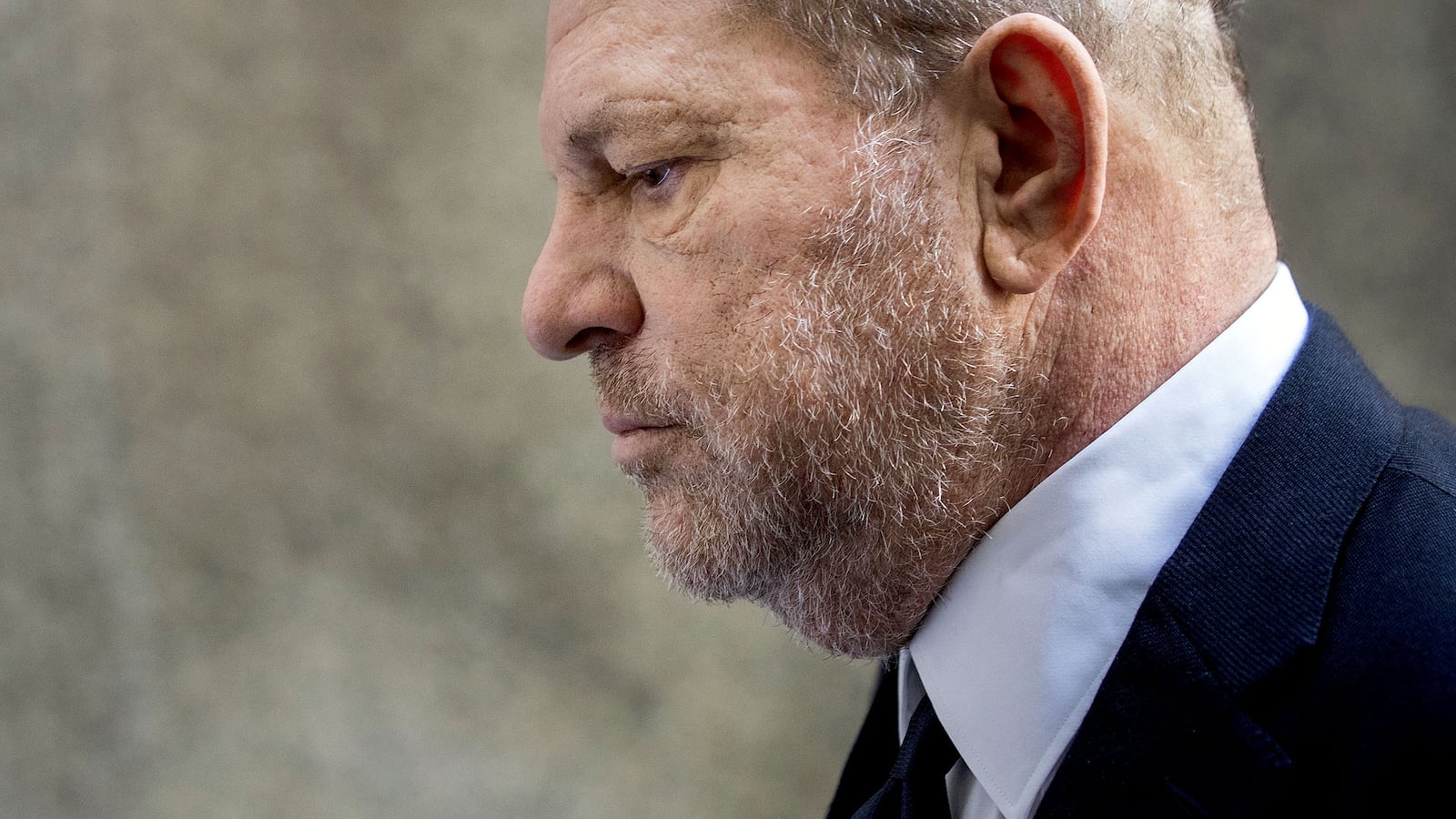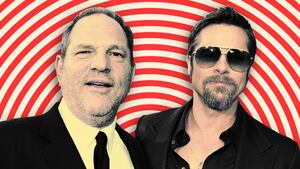It was at the 1997 Sundance Film Festival that Harvey Weinstein, a crater-faced caricature of an asshole Hollywood movie producer, allegedly raped Rose McGowan.
Following a screening of her film Going All the Way, McGowan, then 23, alleges that Weinstein invited her to a meeting at a restaurant that was then changed to his hotel suite. He was effectively her boss, since she’d already filmed a sizeable role in the sci-fi thriller Phantoms, which was to be distributed by the Weinstein-owned Miramax, as well as one of the most powerful men in the film industry, so she went.
Once inside, she says that Weinstein eventually forced himself on her, raping her at the edge of his Jacuzzi. “I felt so dirty. I had been violated and I was sad to the core of my being,” she writes in her memoir Brave. “I kept thinking about how he’d been sitting behind me in the theater the night before it happened. Which made it—not my responsibility, exactly, but—like I had had a hand in tempting in. Which made it even sicker and made me feel dirtier.” (Weinstein has denied all of the many, many allegations of sexual assault made against him.)
To add insult to injury, in January 2017, Weinstein was one of the most visible celebrities at the front of Sundance’s Women’s March—a protest organized and led by Chelsea Handler that attracted A-listers such as Charlize Theron and Kristen Stewart.
And Sundance helped birth the Weinstein mythos, with his Sex, Lies and Videotape putting him, the fest, and American indie cinema as a whole on the map.
Given the Utah fest’s Weinstein complicity, there’s something a bit strange about its hosting the world premiere of Untouchable, Ursula Macfarlane’s documentary about the movie mogul’s reign of terror—and those who enabled it.
Though the BBC production contains little that keen observers of the Weinstein saga don’t already know, it highlights the testimonies of close to a dozen women who allege shocking sexual abuse at the hands of the repulsive bully—stories that, as you witness these courageous women break down telling them, will sadden and infuriate, as accuser after accuser details a similar pattern of abuse: dangling a life-changing opportunity in the film industry, isolating his powerless prey in a hotel suite, and then pressuring (and threatening) them into forced copulation.
Many of Weinstein’s alleged victims explain that rather than fight him off and risk being blackballed from the industry (or worse), they froze and prayed that the nightmare would end soon. “It’s almost like I was hovering over my body and watching what was happening to me,” says actress Paz de la Huerta.
Also featured are employees of Miramax, the company Weinstein co-owned with his brother Bob, who claim that “harassment was all over the place” there, and that many of them knew of a “bad incident” between Weinstein and a former assistant who’d left under mysterious circumstances, but stayed onboard anyway. And then there are the valiant whistleblowers, women like former Weinstein employees Zelda Perkins and Lauren O’Connor, who helped expose their boss’s predatory ways.
But perhaps the most damning portion of Untouchable concerns the media, and how it abdicated its journalistic responsibilities to help protect a monster.
The New Yorker’s Ken Auletta opens up about his lengthy 2002 profile of Weinstein in the magazine, and how he was unable to include any abuse allegations in the piece—even though he’d managed to track down Perkins in Guatemala, and heard the sex-abuse rumblings. (Auletta says that she refused to be identified and Weinstein denied everything, which kept the accusations out of print.) A.J. Benza, the former Daily News gossip columnist who Weinstein is said to have used to help kill negative stories, features prominently, as does New York magazine’s Rebecca Traister, who recounts a bizarre incident where Weinstein repeatedly called her a “cunt” at a glitzy Manhattan soiree before putting her then-boyfriend Andrew Goldman, also a journalist, into a headlock and punching the top of his head in front of a gaggle of partygoers and paparazzi.
“I never saw one photo,” Traister says in the film, even though “hundreds” were snapped of Weinstein manhandling the reporter.
And The New York Times, the very paper that broke the story of Weinstein’s alleged serial abuse, published what amounts to a Miramax press release on the ugly episode, pinning the blame mostly on Traister and Goldman for being pushy interlopers.
“I’m glad I’m the sheriff of this shit-ass fucking town,” Goldman recounts Weinstein saying before he got physical.
Not anymore, thanks to the bravery and determination of the aforementioned silence-breakers.








